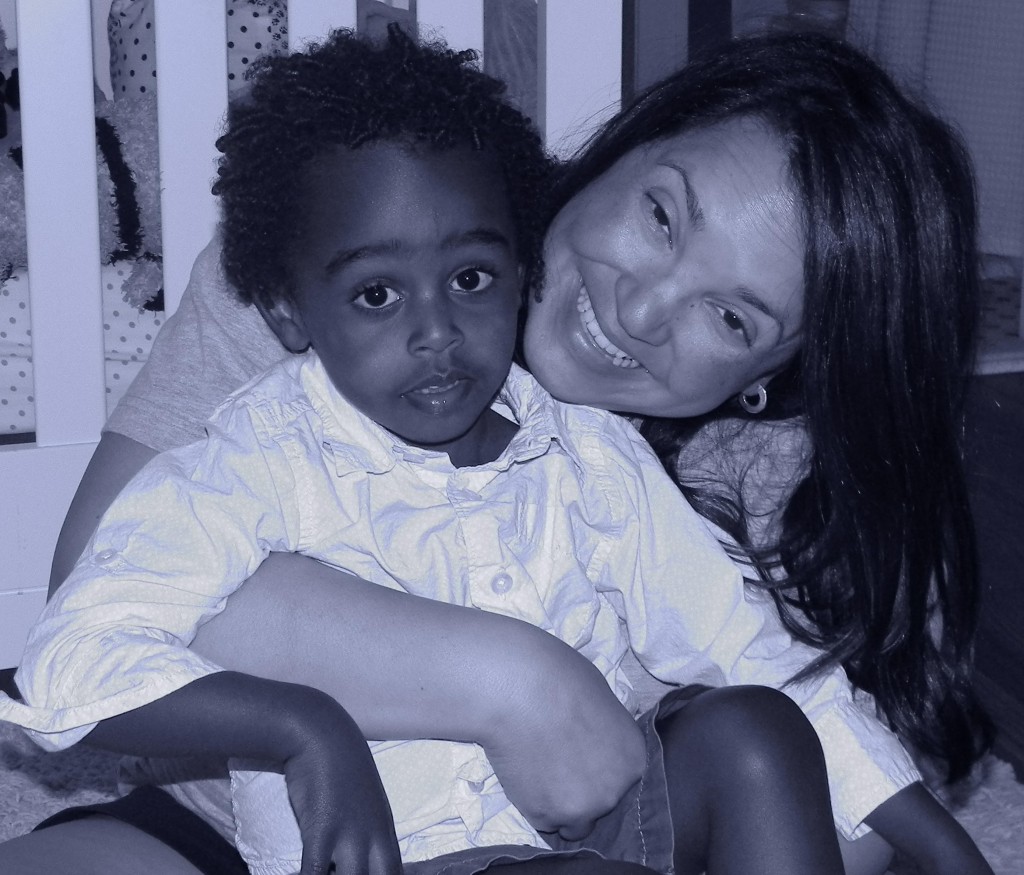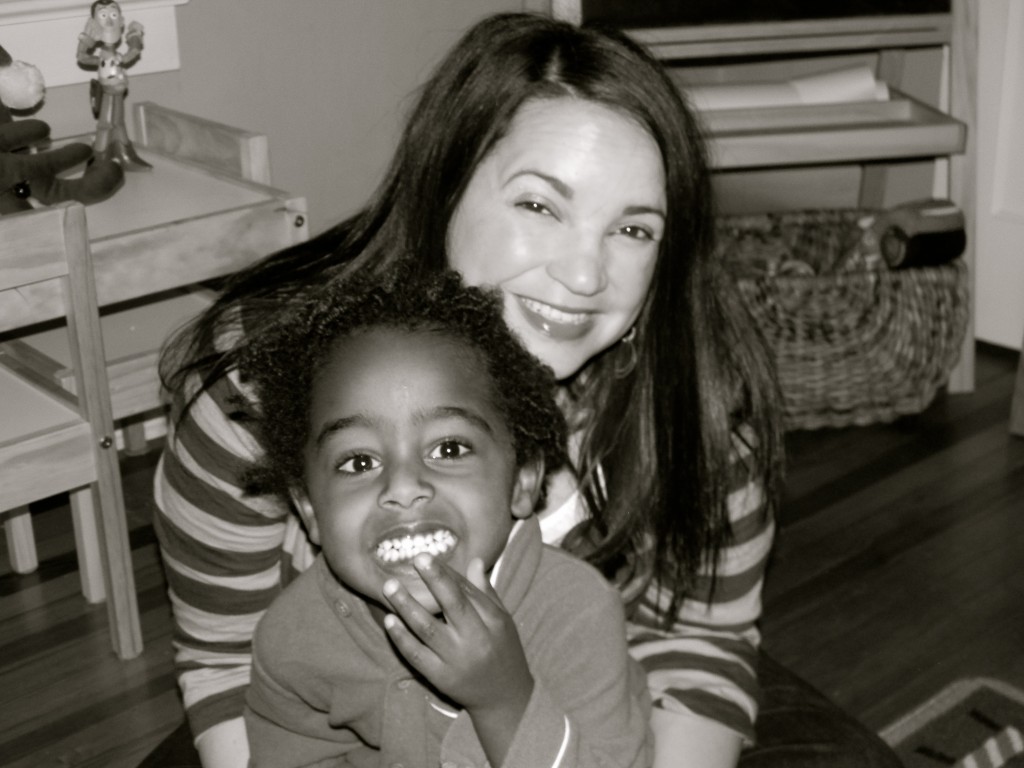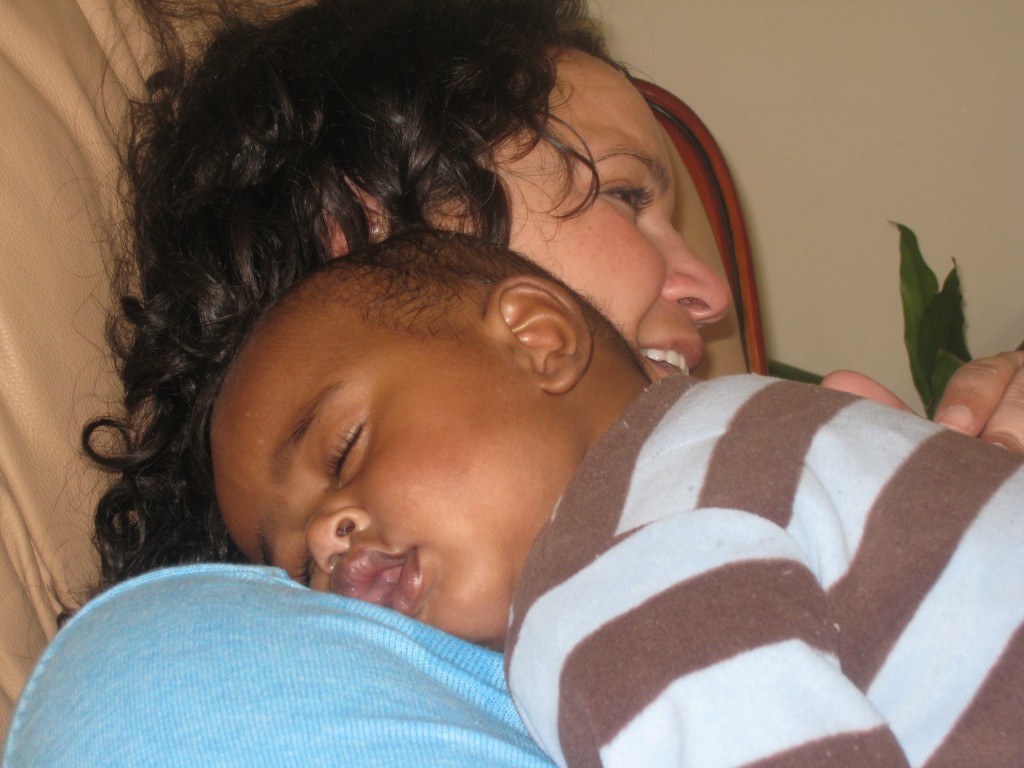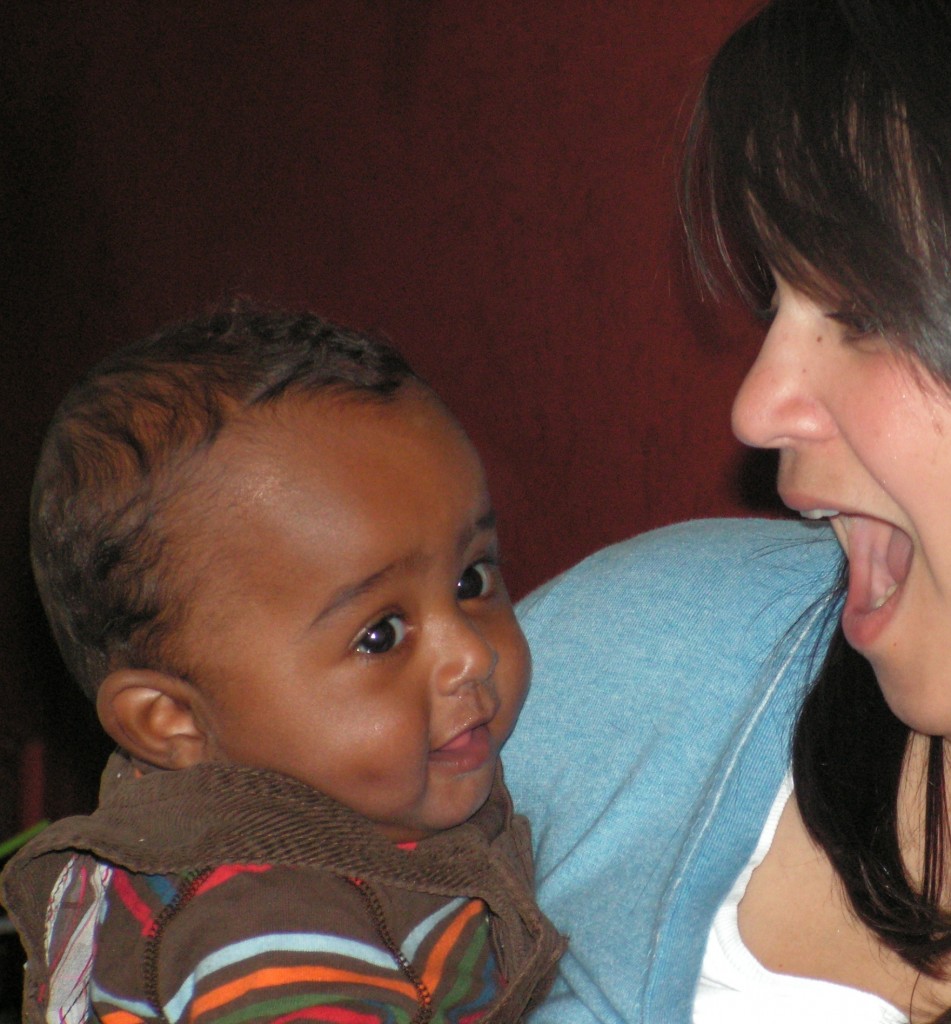For a long time, my ethnicity mattered a whole lot to other people. I wasn’t yet fully formed. I didn’t yet have work that I did, causes that I supported, a fundamental way that I moved through the world that others could reliably see and use to define me and so how I looked, where I lived, what my background was suited some people for my definition. My ethnicity was used to define what I was capable of and what I might do on that day and in the future.
My ninth grade guidance counselor, who I met for the first time at the end of that school year, peered over my transcript, the one with my perfect grades in honors classes and the one that clearly read that I was Puerto Rican, and suggested I might be better suited for and better served by vocational classes. There is nothing wrong with vocational classes- in fact, one of the most important classes I ever took was typing at the vocational program’s night school while my mom took sewing classes- but I knew in ninth grade that a transcript full of vocational classes wouldn’t get me into the school I was most interested in then- the University of Virginia.
Maybe I should be a little bit more practical, my counselor told me.
I stumbled out of his office, red face relaying my shock. Another counselor saw me, had known my older brother and sister years before, and called me into his office.
“What’s wrong?” He asked. I was a good girl, inclined to think adults were always right. I only told him a little bit of what had just been said, but it was enough to probably change the course of my life. He added me to his caseload for the rest of my high school career. That restored some of my faith in adults, in myself, but not all of it. I never applied to UVA, and I know that my definition of what was possible for myself changed some that day.
Years later, not long after my college career ended, I ran into an admissions counselor from the place where I did go to school.
“You were a Spanish major, right?” She asked. She said this is a snide, assuming way- as if the one way I could be successful at the school I attended was if I had majored in something I’d had my whole life to learn.
The friend I was with, one of my closest friends at the time, coughed in discomfort as she asked this. I remember thinking at the time, that’s a warning. But to which one of us? Her for asking this patronizing question or me to indicate it just wasn’t worth it;don’t engage crazy, he might have been telling me.
For a moment, I was silent, collecting words and peace in my heart. And then I explained that, no, I had designed my own major in a special program that our college had for students who wanted an interdisciplinary major in lieu of the traditional liberal arts curriculum offered. It was a program that was considered difficult, that demanded a massive thesis rooted in deep research as the final product.
Her mouth rounded into a big O of surprise.
As if to justify her earlier question, she said, “We let you in not because we thought you’d be an academic powerhouse, but because of what we thought you might add to the campus.” And she winked in a knowing way.
My friend and I begged off then. Because, really, what can you say when someone’s mind is already made up about you?
And though I had taken great pride in my area of study, I also knew how hard it had been to get into the program because of how I was perceived and what I was studying.
A professor connected to the program (who had never had me in class and to whom I don’t believe I had ever spoken) insisted on discussing this question at length with my advisors. It was a question they had never been asked with such fervor about their other students who had previously applied for the program, they admitted to me. They were stunned by the question, I think, because it had never been pressed in such a way, and the irony that I was, indeed, a good writer (if I am honest, there is some poetic justice looking back at this story, now). I went to an academically rigorous school. It was assumed we could all write, until it wasn’t assumed maybe that wasn’t true for me— maybe something else got me in— by someone who didn’t know me or my work at all.
Even then, I wondered if the question was being asked with such fervor because I was fundamentally different from 99% of people on campus. If anything, that admissions counselor’s comment had reminded me of the uncomfortable possibility that I was perceived as valuable because I was just smart enough for a tan girl to be added into the mix.
But there was another reason that question could have been asked, and it was because of what I had asked to major in and research. Eventually, I was admitted into the program where I majored in African-American Studies and Urban Education issues and specifically researched youth gangs. My area of focus was what roles schools could play in reducing youth violence. Specifically, if you asked me, I would have told you that the gangs of the late 80s and early 90s—not the big criminal gangs with massive drug trades but the sets that sprouted up all over depressed cities in America— were like the urban Boy Scouts.
At 15, we all want to feel a part of something. Got nothing to be a part of in your area of town, got no one who can take you to something ‘productive’ after school, you are still going to try and find a group. Then you and your friends are going to move in en masse and find something to do. Wanting to be a part of the group is the fundamental nature of the teenager, finding something to do together is the nature of a group. Sometimes the things that group finds to do are considered productive, sometimes they are not. These young men weren’t inherently criminal. What they did didn’t have to turn menacing, and I theorized that our schools could partner with families to insure that it didn’t—by being deliberate about what was done during the school day and what was offered after the school day when parents were still working.
I bring this all up now because I know what it is like to be profiled as a teenager and young adult. I know what it is like for adults to base their assumptions about you on what your race or ethnicity is, because they feel your life hasn’t yet been more fully defined or, more accurately, the way you have defined your life hasn’t yet been given more credence. Too many people will go for the easy definition of you when you are sixteen. They will put you in a box of their own understanding. And that box of understanding is often labeled by the skin in which you are wrapped.
 And I can whine all I want about how it was hard for me that I was defined by my tan skin as a teen. But, let’s be honest, my skin or gender did not identify me as someone who might be threatening, menacing. It only defined me as someone who might be dumb or lazy (or, in cases that I didn’t get into here, sexual).
And I can whine all I want about how it was hard for me that I was defined by my tan skin as a teen. But, let’s be honest, my skin or gender did not identify me as someone who might be threatening, menacing. It only defined me as someone who might be dumb or lazy (or, in cases that I didn’t get into here, sexual).
I think about this all now as the mother of an African boy— a black boy. A black boy who, let’s be honest, has already had a pretty rough life. And, now, he has to move through the world with people either being suspect of him because of his darkness or willing to give him a pass because his mama is light enough- and has proven herself enough- to not worry about anymore and his daddy is white.
For weeks, now, I have been heartbroken over Trayvon Martin. I almost couldn’t find words for it—I’ve been so devastated for Trayvon’s family and terrified for my own son. When your child comes into your life, what you realize is the fullest extent of love. You’ve heard me talk about it here before, how suddenly you realize how much you have to lose, how you haven’t even touched the knife blade of love and fear until you parent.
I remember when I first dropped my boy off at preschool and how, as I watched him walk away from me, I suddenly had this awareness that this was just the beginning of him moving through the world out of my arms and in his own context. I know that people will look at him and place him in a box of their understanding, and, sometimes, that box is going to be based on his skin color. I know this because I have been there myself. I know this because my area of expertise for a long time, academically, was black boys and now it is my personal area of expertise.
 The other day, I was at the indoor play place at the mall with my boy. As he ran around, jumping off, crawling over, sliding down the stylized Looney Tunes characters, I saw my boy as if removed from myself. Expressive, energetic, fearless. He walked up to other parents sitting around the edge and engaged them in conversation. Will someone, someday, find that threatening? I don’t know, but I do know that I don’t get to assume that they will not. If I want to literally keep my son alive, I have to have hard conversations with him as he grows up. I have to not turn a blind eye. I have to parent like nobody’s business. And then I have to pray. That’s the nature of parenting, isn’t it? That feels true for every single parent- no matter the color of her child’s skin. And yet.
The other day, I was at the indoor play place at the mall with my boy. As he ran around, jumping off, crawling over, sliding down the stylized Looney Tunes characters, I saw my boy as if removed from myself. Expressive, energetic, fearless. He walked up to other parents sitting around the edge and engaged them in conversation. Will someone, someday, find that threatening? I don’t know, but I do know that I don’t get to assume that they will not. If I want to literally keep my son alive, I have to have hard conversations with him as he grows up. I have to not turn a blind eye. I have to parent like nobody’s business. And then I have to pray. That’s the nature of parenting, isn’t it? That feels true for every single parent- no matter the color of her child’s skin. And yet.
I woke at 3 am on Sunday morning because my boy did. And as soon as he went back to sleep, the first sentence of this post came into my mind, and I knew that I had finally found just some of the words I needed to pour out of me, and so I moved to my computer and let these words out in the dark of night, no lights on except for my computer screen. It is not the first time I have been kept awake, worried for my boy, and it won’t be the last. I can only pray that this national conversation begins to create a world where our sons—all of our sons—are no longer seen as people to fear but, instead, as people worth getting to know.
From March 25, 2012




